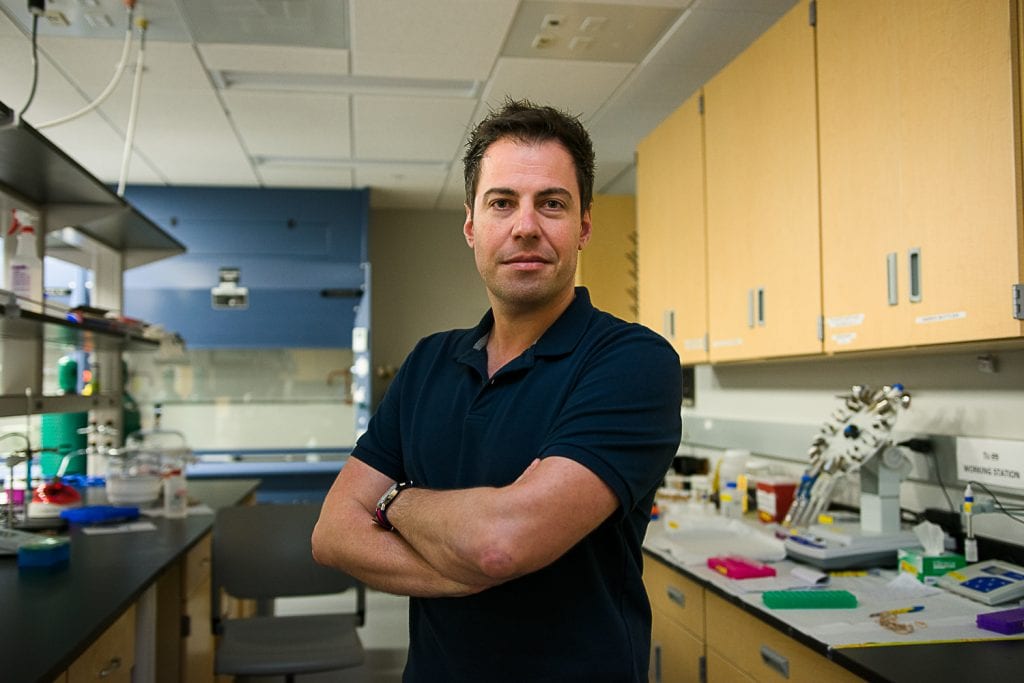$610K Grant Boosts Development of Radiochemistry Lab

Dr. Vasileios Anagnostopoulos
One of UCF’s newest labs just received a $610,000 grant to advance the field of radiochemistry and produce a new generation of nuclear scientists.
The grant from the Nuclear Regulatory Commission was awarded to the Chemistry Department’s Vasileios Anagnostopoulos, Ph.D., whose research focuses on the environmental fate and geochemical transformations of radioactive contaminants, organic pollutants and heavy metals.
The award is just one of approximately 15 grants awarded annually and they target early career professors.
“This is such a new and exciting experience. The department is still developing its radiochemistry and nuclear chemistry program, and this grant will help propel that movement forward,” Anagnostopoulos said.
Anagnostopoulos’s research lab examines how harmful contaminants interact with our environment. The next few months will be dedicated to setting up experiments, including simulations of environments damaged by radioactive waste, and recruiting post-doctoral and graduate students.
“The field of radiochemistry only continues to grow in the U.S., and it demands a highly skilled workforce to meet its needs,” said Cherie Yestrebsky, Ph.D., chair of the Chemistry Department. “We are excited to develop a lab here on campus that will train students and develop groundbreaking research into radiochemistry. This grant will go a long way toward making our goals and ambitions a reality.”
Anagnostopoulos’ studies in the past have assisted the U.S. Department of Energy’s environmental clean up program, currently the largest in the world. Other countries with nuclear activities like the United Kingdom, France and Germany face similar issues.
Anagnostopoulos’ goal is simple: to make a difference in the scientific community with the research outcomes.
“The best part about applied research is knowing that you are always contributing pieces to the puzzle,” Anagnostopoulos said. “My hope is to see my research applied positively in order to make an impact on our world and other scientists.”
